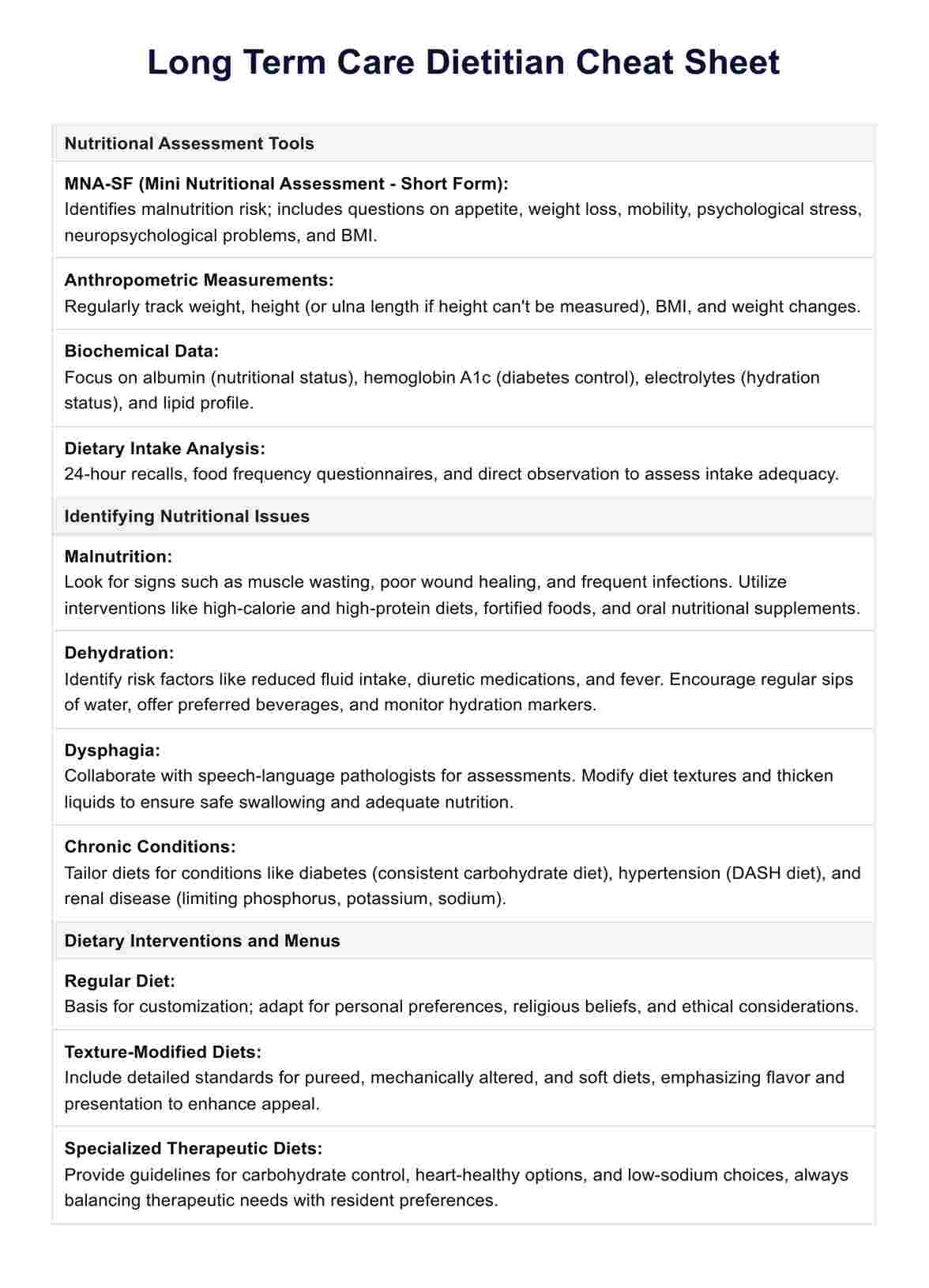Nutrition in long-term care is vital for maintaining health, supporting recovery, and managing chronic conditions. Proper nutrition helps prevent malnutrition, enhances the immune system, and improves patients' overall quality of life.

Discover how a Long-Term Care Dietitian Cheat Sheet can streamline nutritional management to ensure personalized and efficient dietary planning for patients.
Nutrition in long-term care is vital for maintaining health, supporting recovery, and managing chronic conditions. Proper nutrition helps prevent malnutrition, enhances the immune system, and improves patients' overall quality of life.
A registered dietitian in aged care assesses nutritional needs, develops personalized meal plans, and provides dietary guidance to manage health conditions and improve well-being. They play a key role in ensuring that the nutritional care of elderly residents supports their health and quality of life.
The goals of long-term nutrition care include ensuring adequate nutrient intake, managing chronic diseases through diet, and improving patients' quality of life. It focuses on personalized nutrition strategies to meet the unique needs of each individual.
EHR and practice management software
*No credit card required
Free
$0/usd
Unlimited clients
Telehealth
1GB of storage
Client portal text
Automated billing and online payments